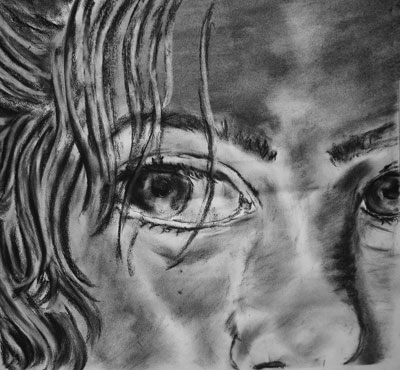All Nonfiction
- Bullying
- Books
- Academic
- Author Interviews
- Celebrity interviews
- College Articles
- College Essays
- Educator of the Year
- Heroes
- Interviews
- Memoir
- Personal Experience
- Sports
- Travel & Culture
All Opinions
- Bullying
- Current Events / Politics
- Discrimination
- Drugs / Alcohol / Smoking
- Entertainment / Celebrities
- Environment
- Love / Relationships
- Movies / Music / TV
- Pop Culture / Trends
- School / College
- Social Issues / Civics
- Spirituality / Religion
- Sports / Hobbies
All Hot Topics
- Bullying
- Community Service
- Environment
- Health
- Letters to the Editor
- Pride & Prejudice
- What Matters
- Back
Summer Guide
- Program Links
- Program Reviews
- Back
College Guide
- College Links
- College Reviews
- College Essays
- College Articles
- Back
The Flaws of Mankind: The Lord of the Flies
It is said that when one spends an amount of time nonstop with another person, that person’s true personality emerges. Why is it that it always seems that that person’s true personality is bad? William Golding addresses this issue in his book Lord of the Flies about a group of boys stranded on an island, alone with no adults. Allowed to do anything they like, chaos starts to reign and the boys’ true inner selves are revealed. From arrogant Jack, to quiet Roger, to charismatic Ralph, the beast that hides within them all begins to rear its ugly head to the world. Golding uses these once innocent schoolboys to show his readers just how essentially flawed mankind is.
Perhaps the most obvious example of the flaws of mankind is Jack. Almost from the beginning, the small red-headed boy shows signs of the angry, savage monster that hides within him. “He snatched his knife out of the sheath and slammed it into a tree trunk. Next time there would be no mercy. He looked around fiercely, daring them to contradict” (31). Although this quote is from very early in the story, Jack is already acting dangerous and aggressive. Later on it is proven that there will be no mercy: not for the pigs and not for the other boys. Even though he was raised a well-behaved British schoolboy, as soon as Jack sets foot on the island and is freed from adult supervision, he loses all track of right and wrong.
Although it is discovered much later in the book, it is eventually found out that Roger is also an extremely imperfect human being. From the quiet little boy that he is in the beginning, Roger becomes a sadistic killer. “…Roger, with a sense of delirious abandonment, leaned all his weight on the lever…the rock struck Piggy a glancing blow from chin to knee…Piggy fell forty feet and landed on his back across the square red rock in the sea. His head opened and stuff came out and turned red…” (180-181). “…the hangman’s horror clung round him [Roger]…the yelling ceased, and Samneric lay looking up in quiet terror. Roger advanced upon them as one wielding a nameless authority” (182). By purposely pushing the lever that released the rock, Roger murdered Piggy. Perhaps the worst part about the situation, though, was that minutes later Roger was not at all repentant for his actions. Instead, he is still filled with a calm and silent evil. Roger shows just how horribly flawed mankind can be.
Perhaps most surprising of all, it is shown that the protagonist Ralph also has a monster hiding deep down inside of him. Although he works to contain it almost the entire book, Ralph’s beast eventually emerges as well. “He felt the point of his spear with his thumb and grinned without amusement. Whoever tried that would be stuck, squealing like a pig…”(192). “Ralph launched himself like a cat, stabbed, snarling, with the spear, and the savage doubled up” (195). As the stay on the island becomes longer and longer, Ralph starts to lose what was once a single-minded focus to escape from the island. Instead of this focus, he starts to turn feral like the other boys. When being chased by the other boys, he becomes like an animal with Golding even comparing him to a cat. Not even Ralph can escape the failings of humankind.
Of the boys stranded on the island, at least three show the imperfections of their souls: even though the three think differently, act differently, and are innately different. Jack becomes a savage, living the life of a beast intent only on its own pleasure and survival. Roger becomes a cruel killer, losing the sense of the importance of other’s lives. And even Ralph turns into a wild animal, reverting back to caveman days. All three boys show how mankind is imperfect and defective. Perhaps this book shows why there can never be peace on earth and between fellow man. It also makes the reader wonder what the person sitting next to them would have done on that small, lonely, deserted island of fear.

Similar Articles
JOIN THE DISCUSSION
This article has 1 comment.
